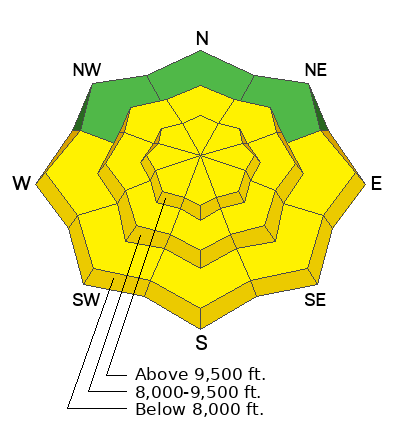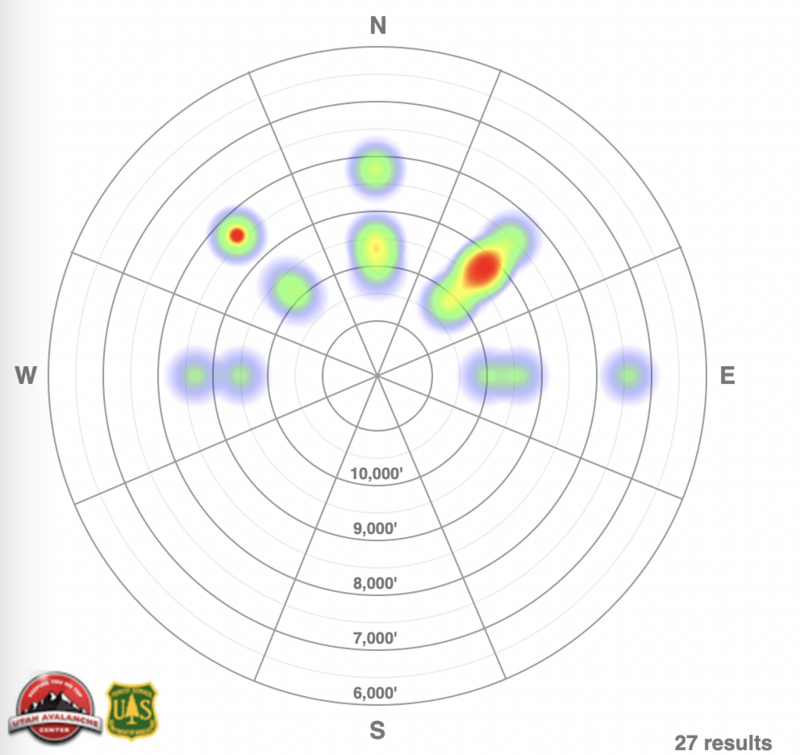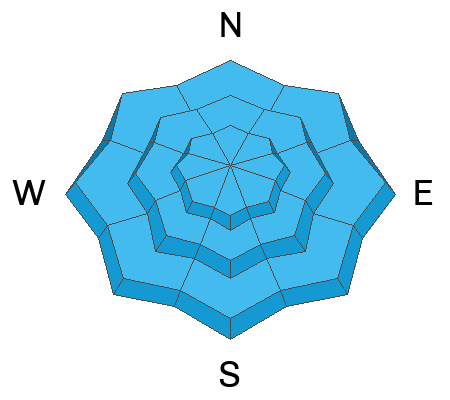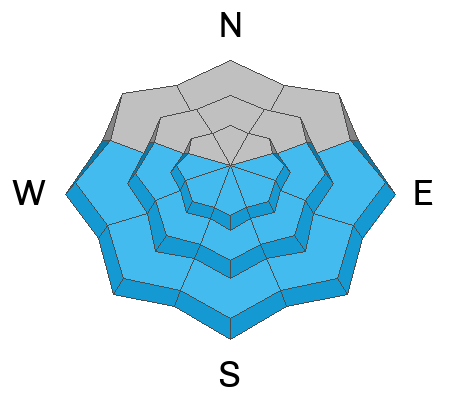Support the UAC website backend platform to ensure the ongoing security of the website and the data stored on the site rebuild by
donating to our spring campaign.
This morning, under broken skies there is lingering light snowfall. Trailhead temperatures are in the mid-teens °F, while the highest peaks are in the single digits °F. Winds have picked up since yesterday, blowing from the west-northwest, gusting to the 30s MPH at the mid-elevation ridgelines, and gusting to the high 50s with a max gust of 72 MPH at the highest ridgelines. There was another 1-3" of new snow overnight, and an additional 7"-10" of new snow in the last 24 hours. This storm has stealthily added a decent amount of water to some locations, particularly in the Upper Cottonwoods where the settled new snow depth is now over 2' feet.
Today, expect lingering lake-effect precipitation in northern Utah to fade by morning due to incoming high pressure, resulting in warming and drying conditions. The day will start mostly sunny but become mostly cloudy later. Temperatures will range from 34-37°F with no snow accumulation expected. Winds will be moderate, with gusts up to 20-25 MPH at 9000' ridgelines and up to 30-40 MPH at 11000' ridgelines.
Looking ahead, after a brief break today, a strong cold front will move across northern Utah on Thursday, slowing over central or southern Utah by Thursday night or Friday morning. It will weaken and return northward on Friday, with more precipitation likely through the weekend. Expect a storm bringing 0.6-1.2 inches of water and 8-16 inches of snow.
Read the updated forecast discussion from our partners at the National Weather Service
HERE.
Yesterday, reports came in of soft slab avalanches up to 2 feet deep in
Conehead, Benson and Hedges, the
Brighton Perimeter,
Argenta, and
Little Superior Bowl. Among these, the avalanche that particularly caught my attention occurred in Little Superior Bowl. Although details are limited, it was reported as being 2 feet deep and 400 feet wide. This incident more closely resembles the size of the avalanche in Silver Fork from Monday, which I went and checked out yesterday. The Silver Fork avalanche was notable as it seemed to have originated as a dry snow avalanche, but had more characteristics of a wet snow avalanche by the time the debris pile settled. You can find a more detailed observation, crown profile, and additional pictures
HERE.
Both of these avalanches stand out for their considerable depth compared to other reported avalanches over the last two days, displaying more slab-like characteristics.
Avalanche Heat map from the past 5 days for the Salt Lake, Provo and Ogden area mountains.
Read all the observations
HERE.











